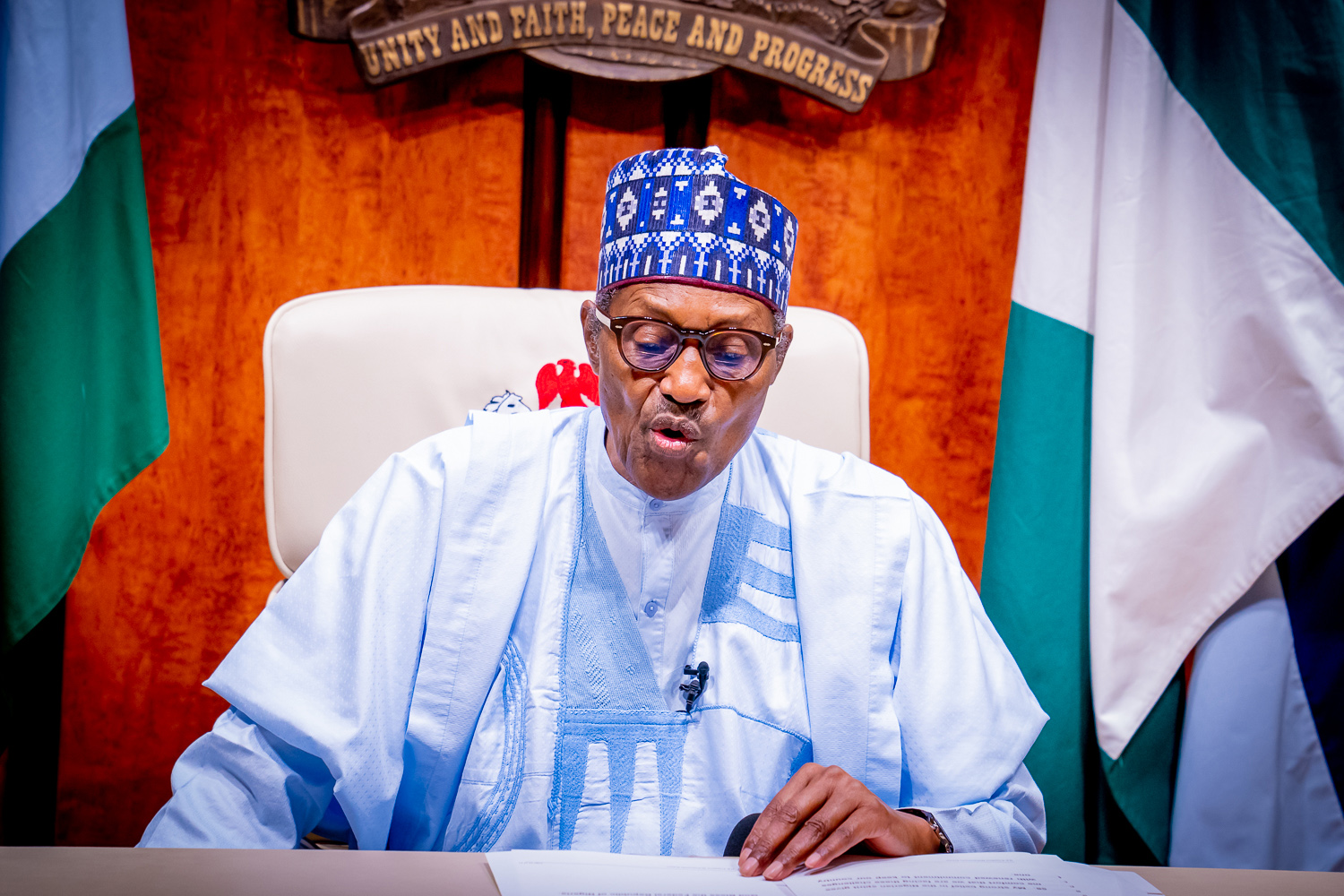Editorial
That FG’s Ban On Twitter

Twenty-two years after quitting military rule, Nigeria is steadily sliding back into full dictatorship under President Muhammadu Buhari. The President is reverting to his well-known authoritarian style of the 1980s, demonstrating growing intolerance of the press and civil society organisations that “challenge” his administration.
In an inelegant display of anger and lack of critical reflection unbecoming of an elected government, and apathy to our rights, the Federal Government on June 4, 2021, announced an indefinite ban on the operations of Twitter in Nigeria after the social media site erased a tweet by President Muhammadu Buhari, threatening secessionist groups in the South-East.
In the deleted provocative post, Buhari had tweeted, “Many of those misbehaving today are too young to be aware of the destruction and loss of lives that occurred during the Nigerian Civil War. Those of us in the fields for 30 months, who went through the war, will treat them in the language they understand.”
Nigerian Twitter users expressed outrage at the blocking of one of the main platforms they have to evaluate their government and hold them accountable. Many evaded the suspension by using Virtual Private Networks (VPN) to access the service, raising questions as to the effectiveness of the ban.
Most shamefully, the embargo adds Nigeria to the catalogue of some autocratic countries where Twitter has been suspended or banned. As a yearning liberal democracy, it is depressing to be found in the same association of social media intimidators like China, Iran, Turkey, North Korea and Turkmenistan, among others. Under Buhari, Nigeria is sliding towards fascism. There must be vigorous push-back.
Apparently outraged by defiance of the prohibition, the Attorney General, Abubakar Malami, authorised the prosecution of anyone caught flouting the ban. However, the declaration neither specified how Twitter users would be identified for prosecution nor did it prescribe the punishment.
Buhari, in the controversial tweet, drew a nexus between Nigeria’s Civil War decades ago and raids on offices of the Independent National Electoral Commission (INEC) by incendiaries and gunmen in the South-East which proclaimed itself the Republic of Biafra in 1967 and combated a devastating war for secession. The President was a commander of the Nigerian government during the war.
The administration attracted considerable disdain when the Minister of Information and Culture, Lai Mohammed, openly declared the suspension and accused Twitter of “the persistent use of the platform for activities that are capable of undermining Nigeria’s corporate existence.”
Associations, civil society groups and lawyers have rightly criticised and condemned the order. Despair has come from foreign missions that strongly support the fundamental human rights of free expression and access to information as a pillar of democracy in Nigeria and the world.
Even diplomats from the European Union, United Kingdom, Ireland, Norway and Canada denounced the move in a joint statement. The United States embassy in Nigeria likewise declared that the ban “undermines Nigerians’ ability to exercise freedom of expression” and “sends a poor message to its citizens, investors and businesses”.
We equally decry Twitter’s proscription because it constitutes a gross abuse of office, as it elevates the personal interest of the President above that of the country and her citizens. The President is indeed not the State and differences over the personal terms he willingly entered with Twitter must not threaten the public and national interest.
Furthermore, the ban is a serious infraction of the Nigerian Constitution, which the trio of the President, the Ministers of Information and Justice vowed to defend. By infringing on citizens’ fundamental rights to the freedom of expression and association, it transgresses Section 39 of the Constitution, while weakening the social and economic rights guaranteed Nigerian citizens by Chapter 11 of the Constitution.
The ban similarly constitutes an unwarranted attack on the corporate, business and professional interests of organisations and individuals legitimately managing their affairs on Twitter, including but not limited to the media, entrepreneurs, researchers, educational institutions, and Non-Governmental Organisations (NGOs).
As of the third quarter of 2020, Twitter accounted for 61.4 per cent of internet users in Nigeria, coming after WhatsApp and Facebook messenger, according to ‘Statista’, while ‘Quora’ estimates the number to be about seven million. Even if the number of users is vastly less, it still does not excuse a ban that is jeopardising the means of business and social communication of citizens.
However, while the ignominious action of the Nigerian government stands excoriating, Twitter must be alive to its responsibility by always watching out for and promptly deleting insalubrious tweets or suspend accounts of those who violate its rules to ensure that the platform provides a safer space for healthy discourse. Specifically, Nigerians who post potentially offensive and disrespectful contents must keep a very wary distance from such practice. Twitter should sanction defaulters for the stability of our nation.
We believe that the current Twitter ban is a poorly concealed dress rehearsal for the full censorship of all social media operations in Nigeria. This is bolstered by recent reports that the Federal Government was in talks with the Chinese authorities to build an internet firewall to block any unwanted organ. Nigerians must strive to end this crawling dictatorship now.
Editorial
As NDG Ends Season 2

Editorial
Beginning A New Dawn At RSNC

Editorial
Sustaining OBALGA’s Ban On Street Trading

-
Maritime4 days ago
Nigeria To Pilot Regional Fishing Vessels Register In Gulf Of Guinea —Oyetola
-

 Sports4 days ago
Sports4 days agoGombe-Gara Rejects Chelle $130,000 monthly salary
-
Maritime4 days ago
Customs Declares War Against Narcotics Baron At Idiroko Border
-

 Sports4 days ago
Sports4 days agoTEAM RIVERS SET TO WIN 4×400 ” MORROW” …Wins Triple jump Silver
-
Maritime4 days ago
NIMASA,NAF Boost Unmanned Aerial Surveillance For Maritime Security
-

 Sports4 days ago
Sports4 days agoNPFL Drops To 91st In Global League Rankings
-

 Sports4 days ago
Sports4 days agoNIGER DELTA GAMES PANACEA TO YOUTH DEV”
-

 Sports4 days ago
Sports4 days agoNPFL Impose Fines On Kwara United Over Fans Misconduct

